My Walk to Palestine
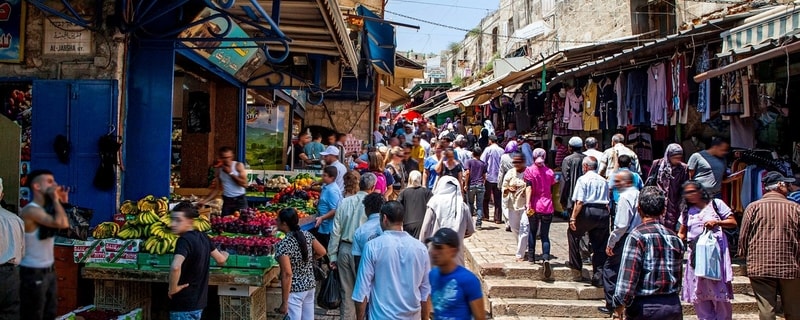
Born into a Sudanese (Afro-Arab-Muslim) family, and coming of age in the UK, I was too young to fully comprehend oppression, occupation, and stolen rights, yet old enough to feel them through mosque speeches, BBC News, and family gatherings. The child in me, felt stabbed, as I struggled to understand the disregarded historical facts and morals. The attempt to erase an entire people and absorb their culture into an artificial identity was a bit too much for a child to comprehend.
Growing up, I taught myself subconsciously and silently to internalise my feelings and accept it for what it was. Clearly, it takes great effort for the mind to accept the very concept of the Israel-Palestinian conflict and Israel’s destructive consequences over the years.
But the painful footage of the 12-year-old Palestinian boy being shot dead, gets to me every time. Mohammed Al-Dura, the son of the entire Palestinian nation, may he rest in peace, is why we must all face the choice between what is right and what is easy, and answer to it.
But then again, how can I involve myself in the grassroots of Palestinian rights, when I have never been to Palestine, or spoken to a Palestinian on how it feels to be oppressed and cut off from their own homeland whilst international settlers take up camp there.
I believe that we are all walking repositories of buried treasure. During my two-week internship in Tunisia I met Lotta Plump, a former intern at UNRWA, and Abdallah, a Palestinian, and visited schizophrenic patients whose subconscious love for Palestine turned into delusions of how to solve the conflict. My experiences made me wonder if all this was a divine sign, guiding my path, and unfolding beautifully to my walk to Palestine.
Little did I know that in a matter of months, I would be crossing borders into Israel.
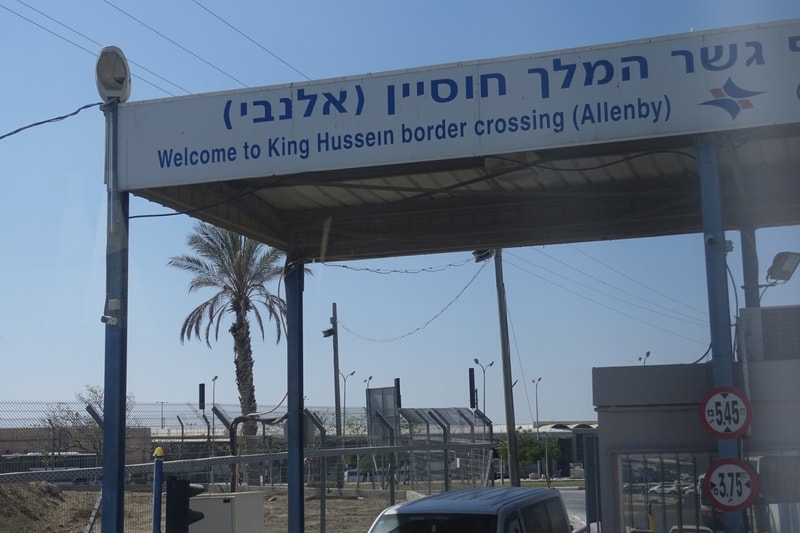
Border crossing from Amman to the West Bank King Hussein Border. This is the route that almost all Palestinians use to cross into the state of Israel — at least those who are actually able to obtain visas allowing them to travel. Image credit: Rahba El Amin
In the weeks before my departure from Jordan to Israel through the King Hussein border, I received travel warnings from the coordinators of the internship, and the organisation sponsoring our trip.
As a Sudanese with a British passport, I was provided with suggestions on how to increase my chances of getting into Palestine-Israel. It is not uncommon for travellers to be denied entry into the country for absurd reasons such as their father’s last name sounding Arab, or if they have criticised Israeli policy on a social networking website.
In Amman, I met up with a fellow-participant from England, Hannah, to make up a four-week itinerary, for sharing with the Israeli security officers at the border.
If denied entry, travellers could be detained for hours, interrogated and forced to board the next bus back to where their flight originated. Other visitors to the region advised me to avoid saying words like ‘Palestine’, ‘Palestinian’, ‘solidarity’, and ‘West Bank’ inside Israel’s border control. I was also advised to sanitise my email, Facebook, WhatsApp, and phone gallery in the event that Israeli officials requested my password to rummage through my inboxes, messages and profile, which did actually happen, during my 30-minute interrogation.
Unfortunately, this is a common experience for Arabs, Muslims and Palestinians attempting to visit the country. Additionally, I was warned that the Israeli authorities, on occasion, try to make the traveller feel as though they’ve done something wrong. In my case, this tactic was working. I felt I was committing a crime by wishing to enter Israel.
Israel was getting to me already, and I hadn’t yet stepped foot in there.
Whilst my hopes of saving refugee children’s lives and praying at Alaqsa mosque blurred, my thoughts lingered between, ‘Should I book my flight back to Sudan?’ and ‘I should have thought this through’.
After almost eight hours of detainment and 30 minutes of interrogation, when we were informed by the Israeli official that we were officially permitted into Israel, we burst into tears, hugged and jumped in joy. Seeing our genuine joy, even the Israeli officer laughed and said, ‘Congratulations!’
Wheeling our suitcases into Israel — we were reminded of the fairly simple journey we thought we were embarking on. We left the arrivals hall, beaming but drained from the ordeal. Our passports were not stamped, our Israeli visa was given to us on paper.
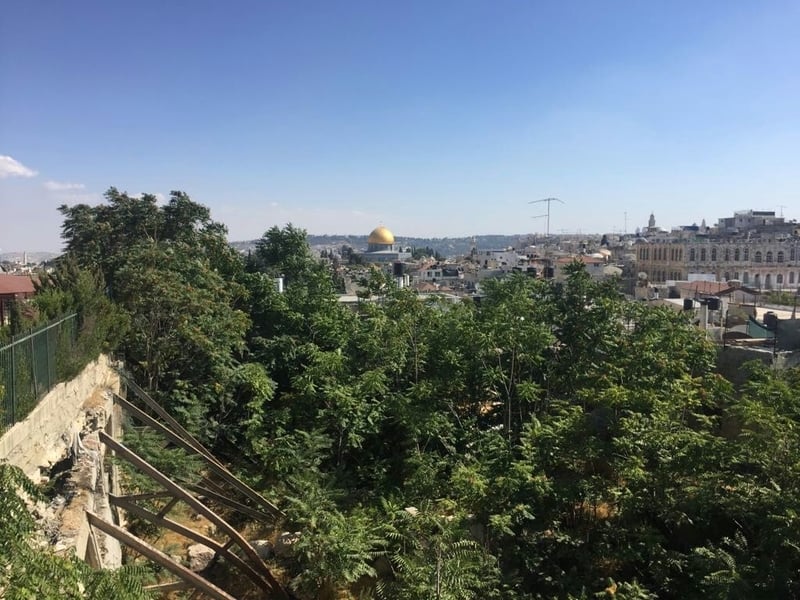
Jerusalem, the beautiful. Image credit: Rahba El Amin
We took a taxi from Allenby border, to Jerusalem, witnessing along the way, the huge, illegal Israeli settlements — glistening, military-gated ‘communities’ strategically placed on hilltops and water aquifers, beautifully constructed with US tax dollars.
Driving through the holy land was a unique experience and I had never felt anything like it.
The knowledge that all the prophets walked on this Holy Land — surrounded by desert, with the sea on one side, and the vast Middle East on the other — thousands years ago, was a humbling and peaceful experience.
I couldn’t help but notice the clouds above me that resembled big choleric fists being thrown to the sky, demanding mercy and justice.
When you’re in the Holy Land, all your senses change. It is difficult to explain but you feel the making of history in every corner. You get a sense of war, conflict, and suffering but also of peace, love, and hope. You can feel the true meaning of the Holy Land and you can feel it in every breath you take running through your body and soul.
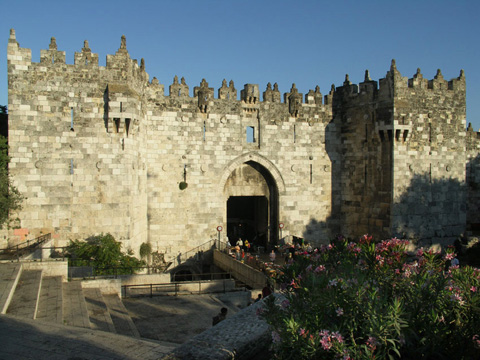
Damascus gate, the main entrance into the walled Old City. Image credit: Rahba El Amin
As we enter the Old City in the early morning, few shops are open. Some shopkeepers are sweeping and washing the narrow alleys and streets in front of their stores. The smell of bread fills the air. Occupation troops patrol in groups of three. Sometimes they lean lazily against walls—ignored and ignoring the emerging life around them.
Come back later and by mid-morning you find that the Damascus gate is transformed. Fallahat—women from the villages around Bethlehem — sit along the walls selling every kind of fresh produce. They wear their traditional thoub — black, and blue dresses with intricately embroidered breast panels. Laid out before them on clothes are vine leaves, mint, sage, eggplants, tomatoes, and zucchini.
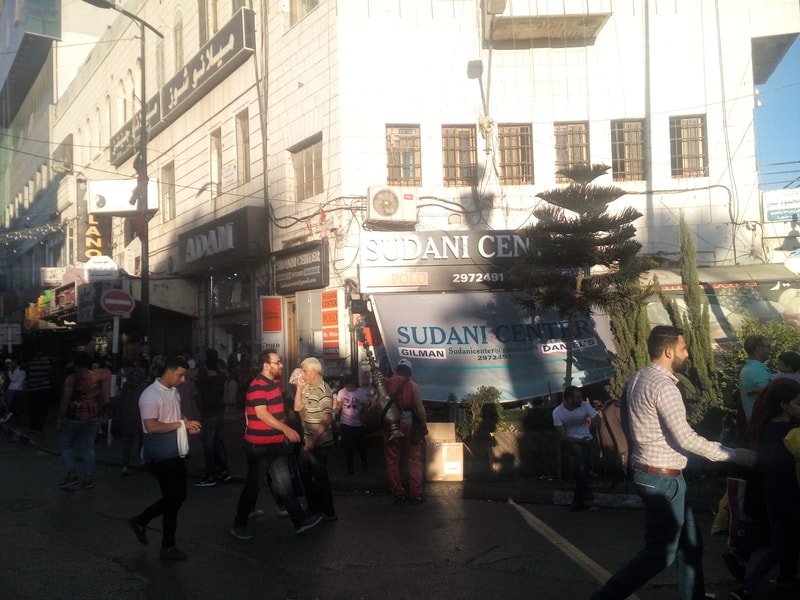
The Sudani Center. Image credit: Rahba El Amin
Jerusalem, surrounded by ways and rhythms that cut as deeply into people’s lives as the wheel ruts grooved into the stone passageways, convince me that Israel may occupy Jerusalem by force, but Jerusalem will never belong to it.
It is beyond possession and will outlast its latest conquerors.
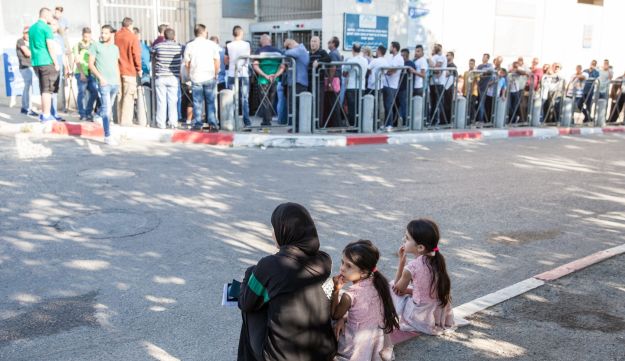
Israeli Interior Ministry. Image credit: Rahba El Amin
Palestinians gather in front of the Israeli interior ministry office in occupied East Jerusalem from the previous night so they can be first in line when the cage-like entrance opens in the morning. Some of the people line up simply to sell their places to the late-comers. This is where Palestinians must come to petition the occupation authorities for spouses and children from other parts of the occupied territories to be allowed to live in Jerusalem.
This is also where Jerusalemites must come to defend their right to stay in their own city and to register their children. It is within these walls that orders have been issued to expel thousands of Jerusalemites and to divide thousands of families. A little way up the road is the US consulate. By morning, there is a line there too. Palestinians are always lining up at checkpoints, government offices and embassies.
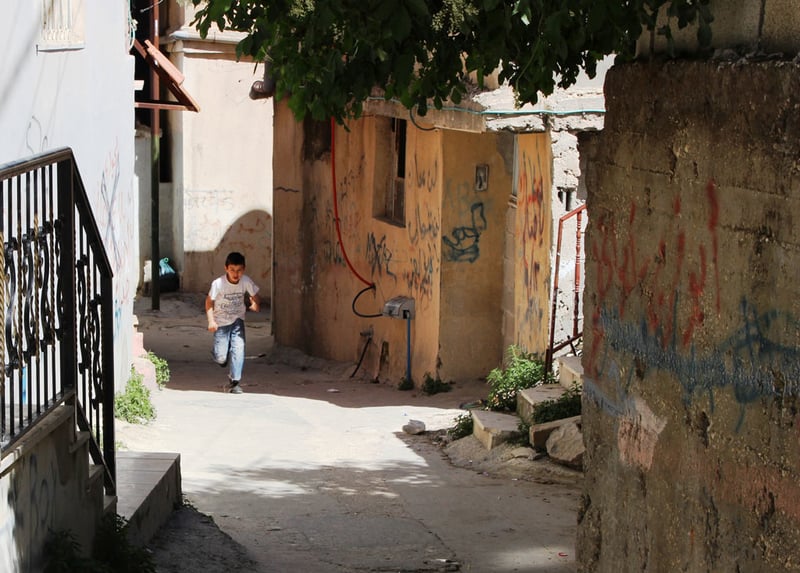
Refugee Camp. Image credit: Rahba El Amin
The camps have existed since 1948, and over the past 60 years have expanded considerably. The initial tents were replaced with houses during the 50’s, and now the cramped conditions home large numbers of people within a few square kilometres. And whilst the concrete buildings do not immediately correlate with mental preconceptions of a ‘refugee camp’, the social issues that exist here were revealed to be multifaceted. Significantly, the crowded houses and narrow streets offer little space for children to play.
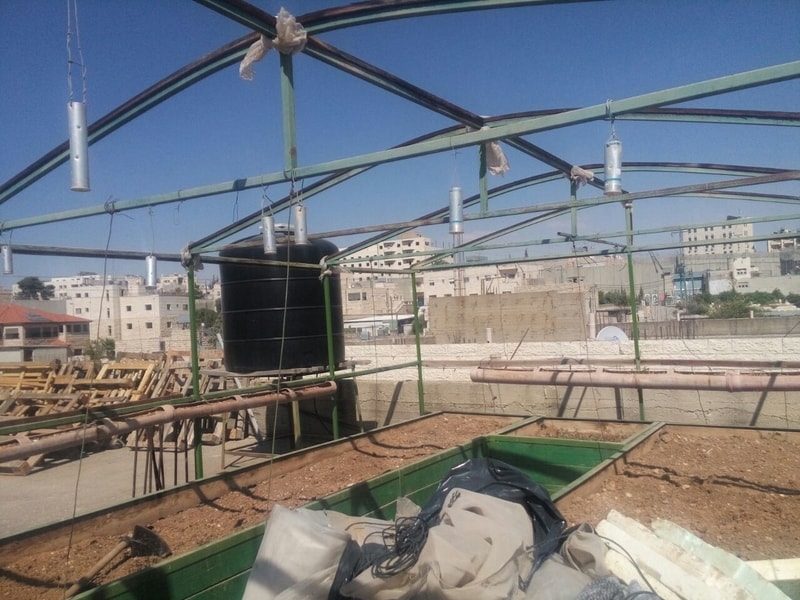
Tear gas canisters, dangling on top of a demolished greenhouse – Aida Refugee Camp. Image credit: Rahba El Amin
A study has denounced the Israeli army’s widespread and indiscriminate use of tear gas in this refugee camp. For years, residents of Aida refugee camp have learned to live with the ever-looming threat of tear gas, and have used spent tear gas canisters as plant pots and jewellery to sell as a source of income.
‘And then after our last conversation, we both said things we didn’t mean, I heard there’s a woman in Palestine, who makes flower pots out of used tear gas grenades, from this I learnt the explosion is not how the story has to end.’
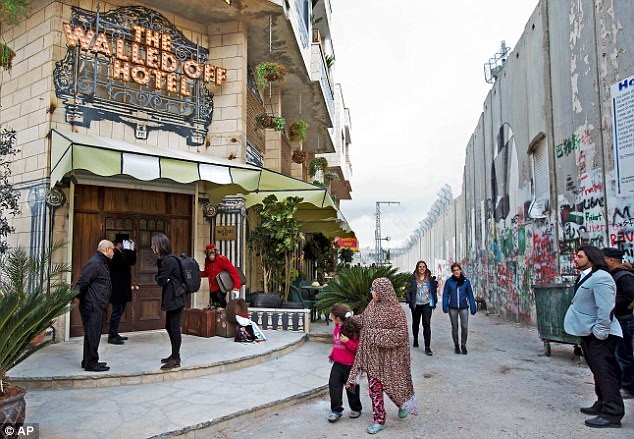
Banksy’s The Walled Off Hotel overlooking Bethlehem wall. Image credit: Rahba El Amin
Nestled against the controversial barrier wall separating Israel from the Palestinian territories, The Walled Off Hotel lodging offers travellers a hotel, museum, protest and gallery all-in-one, packed with the artworks and angry brilliance of its owner, British street artist Banksy.
‘Walls are hot right now, but I was into them long before Trump made it cool,’ said Banksy in a statement. The artist, who fiercely guards his anonymity, first came to Bethlehem more than a decade ago, leaving a series of paintings on the barrier that has become a tourist destination in its own right.
‘What’s helping you survive all this?’ We asked the Bedouin women.
‘Hope, it is the last thing we’ll lose,’ they say and, in fact, that’s the only thing Israel has not colonised yet.
While the whole world criticises, and the peace processes continue to fail, Palestinians keep enduring, fighting and protesting no matter how many tear gas bombs are dropped or detentions they have to face.
It truly is the Palestinians that cultivate hope in the rest of the world.
As the poet Rafee Ziada puts it:
‘[We] Palestinians teach life, sir.’
Leaving the West Bank
Leaving the West Bank, I was reminded of my home county. The cars coming and going from the Istiraha (rest area) told the story of the rich and the poor in Palestine. There were only two types: ageing and beaten Toyotas or Opels overloaded with sweating families and baggage, or brand new Mercedes, Audis and Jeep Cherokees whisking one or two of the well-heeled in air-conditioned comfort. Either the middle class didn’t drive, or it didn’t exist.
The mind has a way of making traumatic experiences seem like distant dreams to those who survive them. As it goes, the more traumatic the experience, the quicker the paramedics in one’s mind, rush to dress wounds, resuscitate and stabilise you.
Since returning from Palestine, I find myself confronted with feelings of detachment and minimisation of what I encountered. My subconscious has decided the horrors I witnessed in the ‘Holy Land’ were nothing serious — horrors which include a 26-foot-tall concrete wall enclosing the Palestinian inhabitants of the West Bank, and sniper towers on every other corner of this open-air prison.
This was my first trip to Palestine.
Our response to this experience is shaped not only by suffering and injustice, but by the beauty and generosity we experienced. Having made friends with our Palestinian hosts and drinking more cups of Arabic coffee than we can count, we feel a real connection to Palestine.
كل عام و فلسطين اقرب الى الحرية ❤
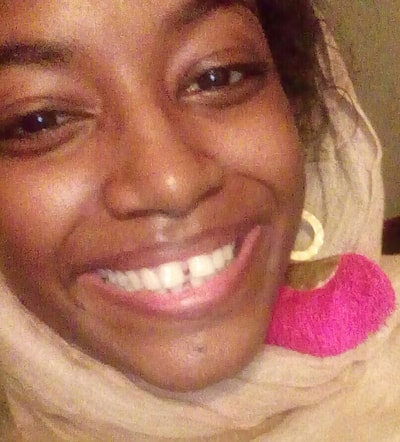 Rahba El Amin is a fourth year medical student at the University of Khartoum, trying to do her little bits of good everywhere she goes. She is a blogger, book-worm, aspiring writer, photographer and human rights activist — who can’t live without shai bei laban.
Rahba El Amin is a fourth year medical student at the University of Khartoum, trying to do her little bits of good everywhere she goes. She is a blogger, book-worm, aspiring writer, photographer and human rights activist — who can’t live without shai bei laban.
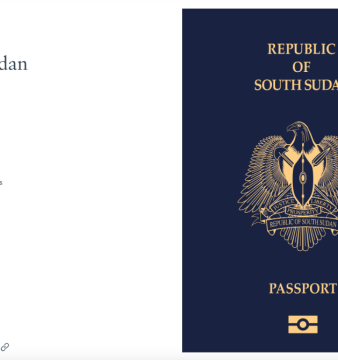
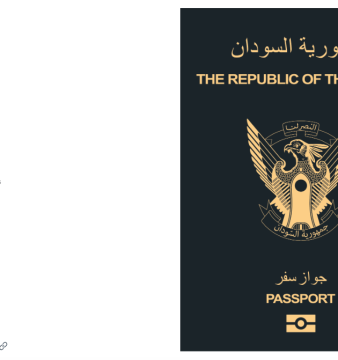
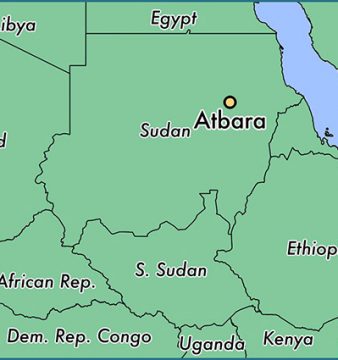
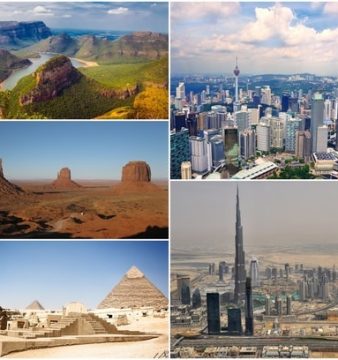
I have no horse in this race. I cant tell you visiting Ramallah , Jordan and Jerusalem I was captivated by the openness and good nature of the Israelis. As an American I felt at home almost immediately.
Jordan was gorgeous. I will never forget Petra. Ramallah, not so much.
Unfortunately, the immediate tension that was palatable in the West Bank just because I look or dress like an American I didnt appreciate.
I noticed how women are treated poorly and one Cafe owner saying in arabic how he doesnt allow women in his cafe who dress like western sl-ts.
While in Isreal I witnessed what I will describe as one of the best parties ever, the LGTB parade. Wow.
Women Soliders and Commanders. Black, Brown and Asian IDF soldiers. I really couldnt believe it with my own eyes.
Although, I do know many arabs personally and I know them to be warm and kind. They, including the moderates are highly closed in and reject inclusivnes. I gather due to the teachings of the Qur’an. I read it. I can see how it impedes modern progress.
I appreciate your experiences and your opinion. I do feel your observation was made thru an acute one sided lens. How can you overlook the obvious
God Bless You and Thank You